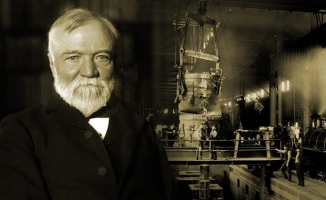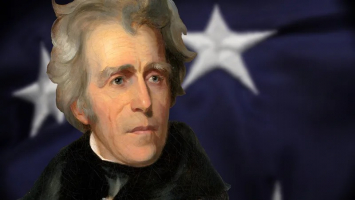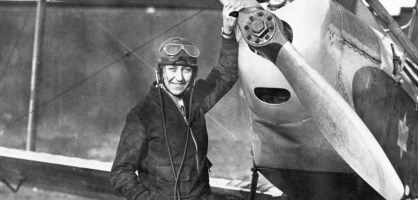Top 6 Interesting Facts about Andrew Johnson
A tragedy that shocked the country brought Andrew Johnson to the presidency. After John Wilkes Booth's assassination of Abraham Lincoln in 1865, Johnson was ... read more...elected president. But Johnson's presidency saw a number of other significant accomplishments as well. He not only purchased Alaska, but he also became the first American president to experience the effects of impeachment. Are you curious about this president? Let's follow Toplist now to discover some interesting facts about Andrew Johnson.
-
Johnson, a working-class child who was born in Raleigh, North Carolina, in December 1808, had little privileges growing up. His childhood home was a log cabin, and after his father passed away in 1812, he chose to work rather than go to school and become an apprentice tailor.
One of the interesting facts about Andrew Johnson is he learned the basics of reading on his own, but he didn't start formal education until he wed Eliza McCardle in Tennessee in 1827. Despite having lost her father as a young girl, Eliza was quite well-educated. He learned the fundamentals of math and writing from McCardle, developing abilities that later helped him buy real estate and achieve affluence he had previously thought unattainable. He advanced in Tennessee politics as a result of his achievement, eventually taking the position of mayor of Greeneville before being elected to the U.S. House of Representatives in 1843. In 1853, he was elected governor of Tennessee, and in 1857, he was elected senator. Johnson's wife was an invalid, confined to her room all the time, by the time he was elected president. During formal events, their daughter Martha served as hostess.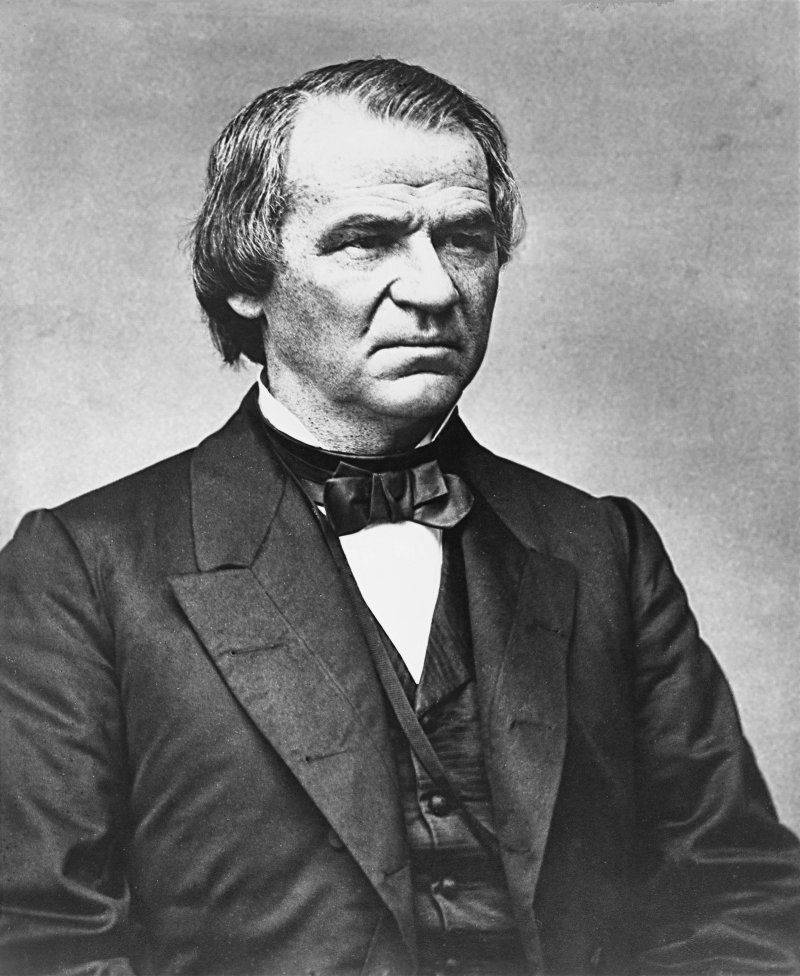
Photo: wikipedia 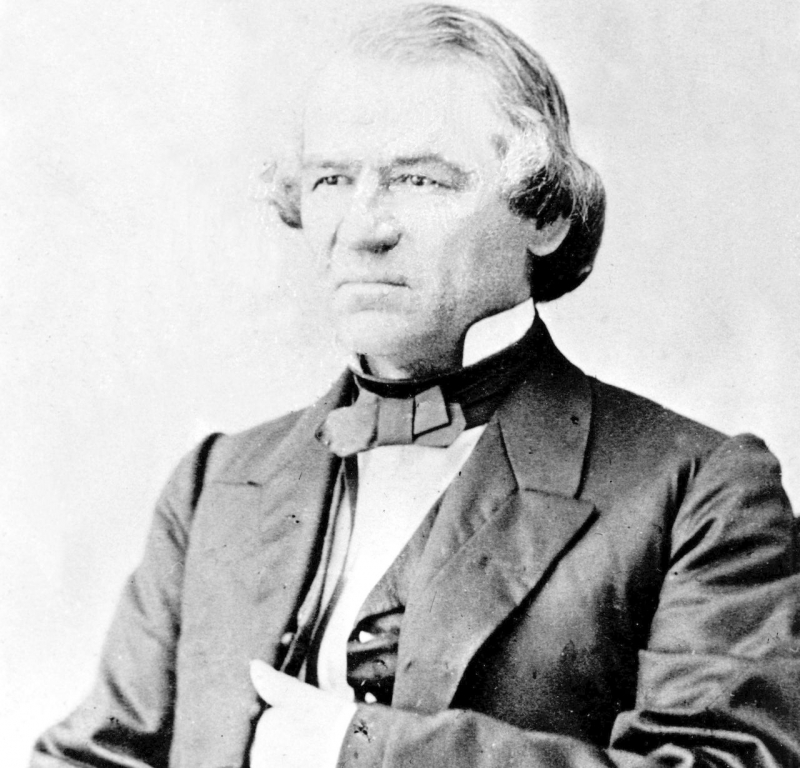
Photo: wrhs.org -
His father, Jacob Johnson passed away while Andrew Johnson was just three years old. His mother, Mary McDonough Johnson, later gave him and his brother to a tailor called James Selby as indentured servants after she got remarried. At the age of eleven, Andrew joined Selby's store as an apprentice, and he was required by law to work there until he turned 21.
After nearly five years at James Selby's, Johnson and his brother left because he was unhappy there. Selby published a newspaper ad on June 24 offering a prize of $10 to anyone who could bring the brothers back to him. They were never apprehended, though. The Johnson brothers traveled to Carthage, North Carolina, where Andrew Johnson spent many months working as a tailor. Johnson relocated to Laurens, South Carolina, out of fear that he might be detained and sent back to Raleigh. He promptly got employment, met Mary Wood, his first love, and made her a quilt as a gift. She declined his marriage proposal, nevertheless. He went back to Raleigh in the hopes of buying out his apprenticeship, but he was unable to reach an agreement with Selby. Unable to stay in Raleigh, where he risked being apprehended for abandoning Selby, he decided to move west.
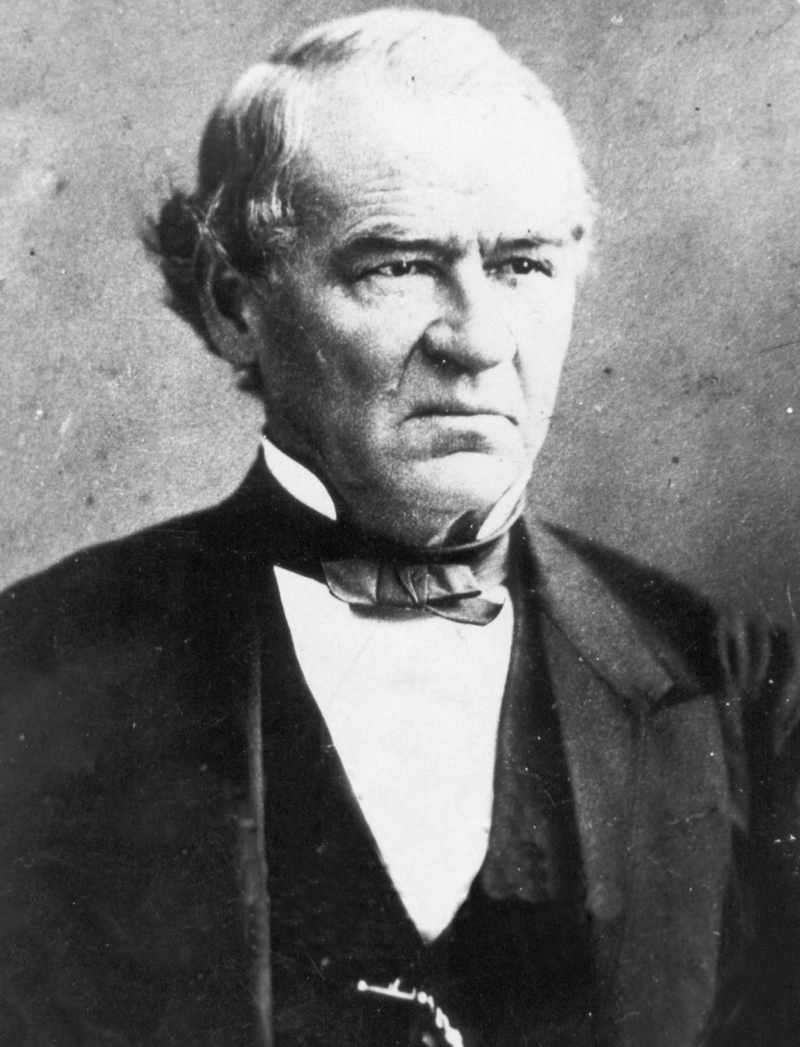
Photo: commons.wikimedia.org 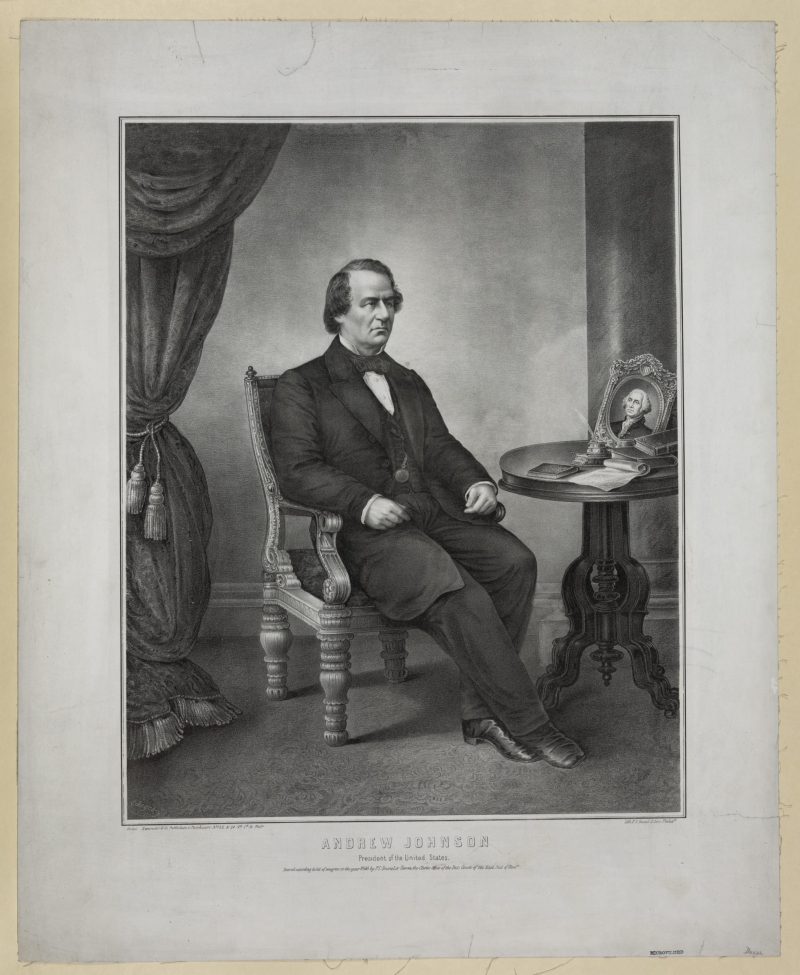
Photo: encyclopediavirginia -
One of the interesting facts about Andrew Johnson is he had a tough inauguration. Typhoid fever was significantly more prevalent in the United States during Johnson's time than it is now, and Johnson just so happened to contract the illness on March 4, 1865, the day before Lincoln was inaugurated. Even though he recovered, he was still under the weather on the day of the event. He drank whisky to ease the symptoms. As a result, Johnson gave a rambling speech in the Senate Chamber in front of Lincoln, the Congress, and dignitaries. He eventually came to a stop, almost incoherent at moments, and Hamlin quickly swore him in as vice president. Following his own swearing-in outside the Capitol, Lincoln, who had observed the disaster with sadness, gave his lauded Second Inaugural Address.
Johnson's public intoxication sparked rumors that he had a drinking issue. Lincoln was compelled to respond to the allegations, assuring Washington that they hadn't merely installed a drunk in the Executive Branch. Johnson only briefly presided over the Senate in the weeks following the inauguration, hiding from the public eye at Francis Preston Blair's Maryland residence.
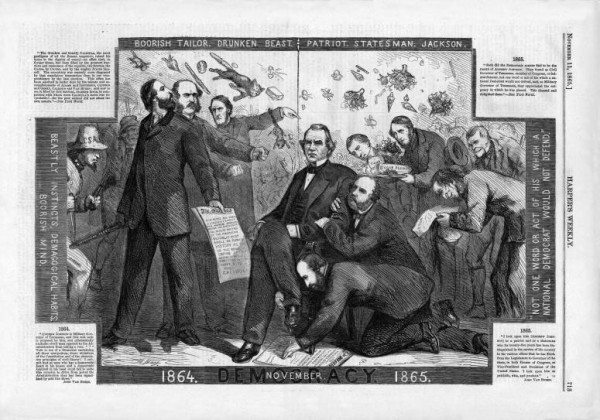
Photo: potus-geeks.livejournal 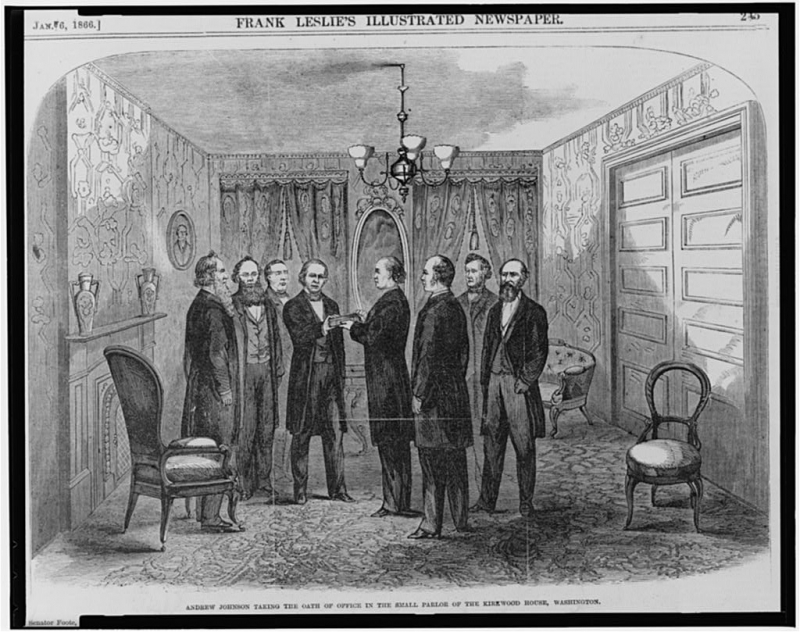
Photo: nps.gov -
John Wilkes Booth, a supporter of the Confederacy, shot and severely wounded President Lincoln that evening at Ford's Theatre. The President was shot as part of a plot to kill Lincoln, Johnson, and Seward on the same night. Seward narrowly escaped with his injuries. Atzerodt, a friend of Booth's, set up shop in a neighboring hotel where he knew Johnson was staying at the same time as Booth was getting ready to murder the President. Atzerodt tried to summon the confidence to knock on Johnson's door and shoot him. Atzerodt was unsuccessful, though. Instead, he went for a stroll. Johnson was awakened by Leonard J. Farwell, a fellow boarder at the Kirkwood House, who told him of Lincoln's shooting.
Atzerodt admitted to his involvement in the crime and was executed on July 7 of that year, following the killing of Lincoln and a wave of arrests. Johnson, who is currently the president, approved an executive order mandating the man's demise.
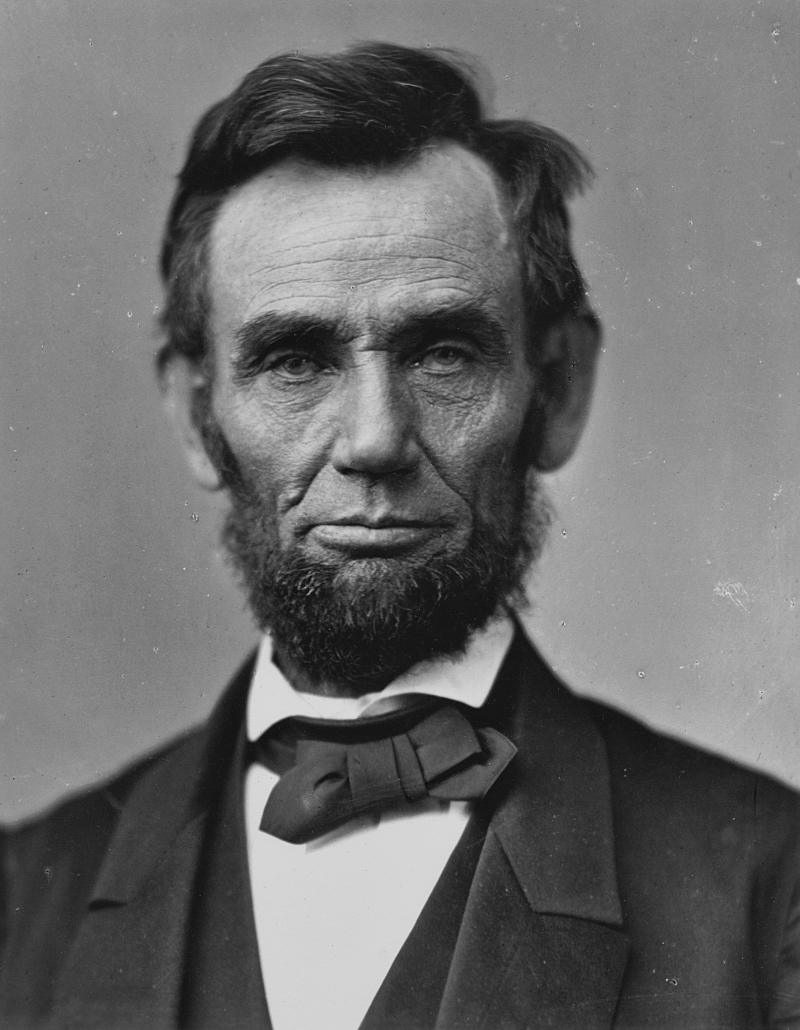
Photo: Lincoln - wikipedia 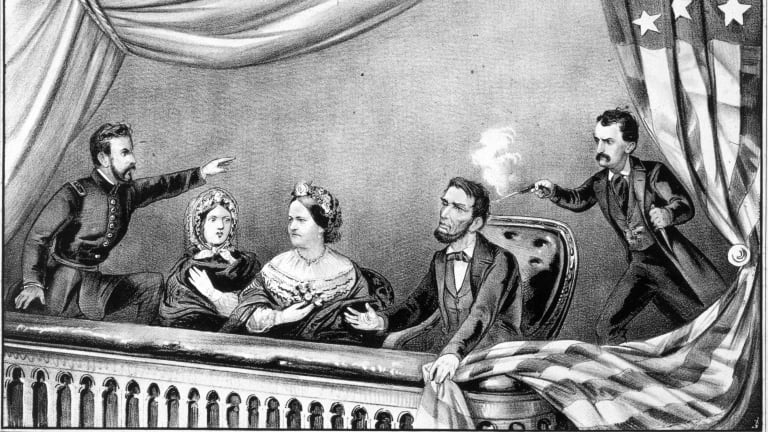
Photo: History -
Alaska had been a part of Russia's territorial claims for well over a century. During an expedition in 1741, the Russians were the ones who had first surveyed the 586,000 square mile regions. For many years, the fur trade was prosperous, but in the 1850s, a creeping fall in exports and growing worries that they might be overtaken by American or British armies prompted Russia to explore selling the region to the United States.
Due to the onset of the Civil War, negotiations between Russia and the U.S. regarding the sale of Alaska were put on hold. However, after the U.S.'s victory in the conflict, negotiations resumed. Baron Eduard de Stoeckl, Russia's minister in Washington, was given instructions to conduct a sale negotiation. De Stoeckl did this skilfully, persuading Seward to increase his offer from $5 million to $7 million (coincidentally, the lowest amount that Russia had advised de Stoeckl to accept); he then added $200,000 by bringing up a number of issues. Alaska had been acquired by Johnson's administration on March 30, 1867, for $7.2 million in gold. In today's dollars, this $7.2 million is comparable to $140 million.
Political analysts mockingly referred to the property as "Walrussia" and "Johnson's polar bear garden" in editorials since they didn't think it was worthwhile. Congress put off the deal until Johnson's failure to win the Democratic Party's presidential nomination in 1868.
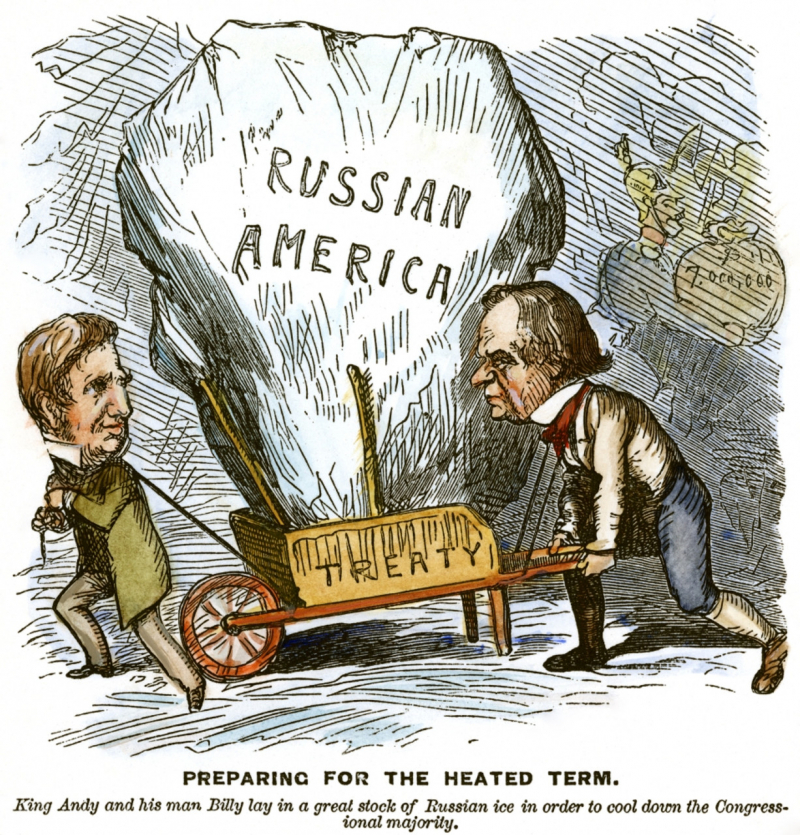
Photo: posterazzi 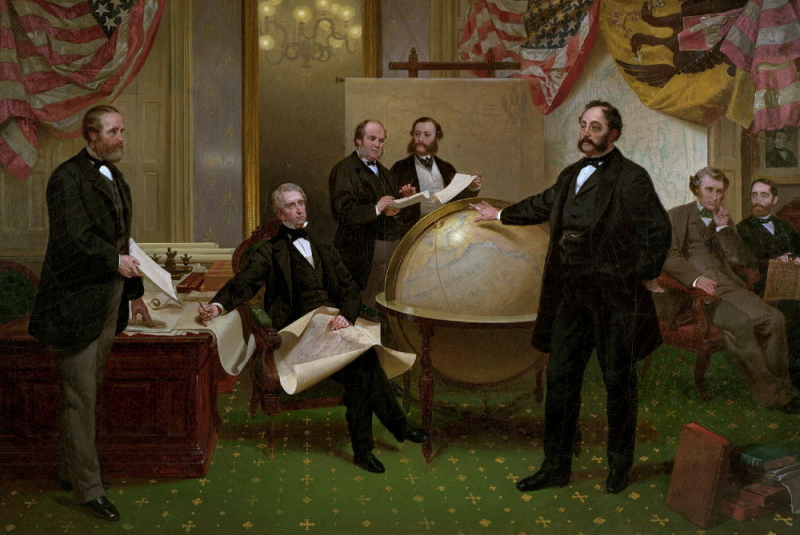
Photo: constitutingamerica -
Less than three years into his administration, Johnson was facing harsh criticism for his Southern views on reconstruction and persons who had formerly been in slavery. Under his administration, southern states started passing "Black Codes" that restricted the rights of Black Americans, infuriating the Senate Republicans in control. Johnson also removed Radical Republican friend and Secretary of War Edwin Stanton in defiance of the Tenure of Office Act of 1867, which was designed to restrict the president's authority to terminate officials without Senate consent.
The House of Representatives voted to impeach Johnson on February 24, 1868, by a margin of 126 to 47, viewing it as a willful act of disobedience. Johnson patiently retracted from most of the stances that had angered his political adversaries during the 11-week Senate trial. Votes were cast on May 16 and May 26, and he was given the green light to serve out the remainder of his term.
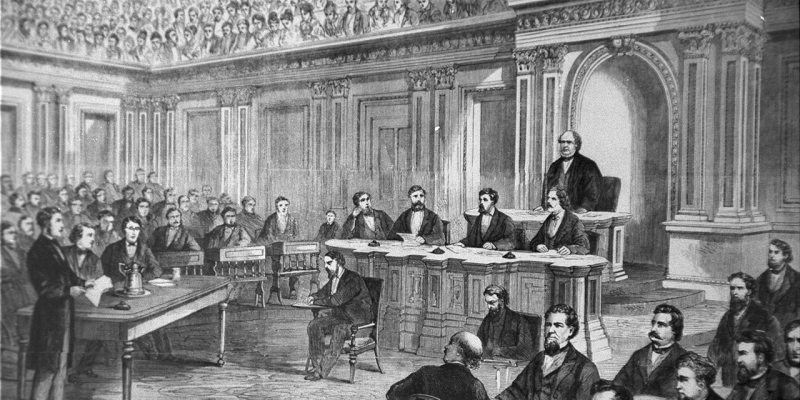
Photo: city-journal 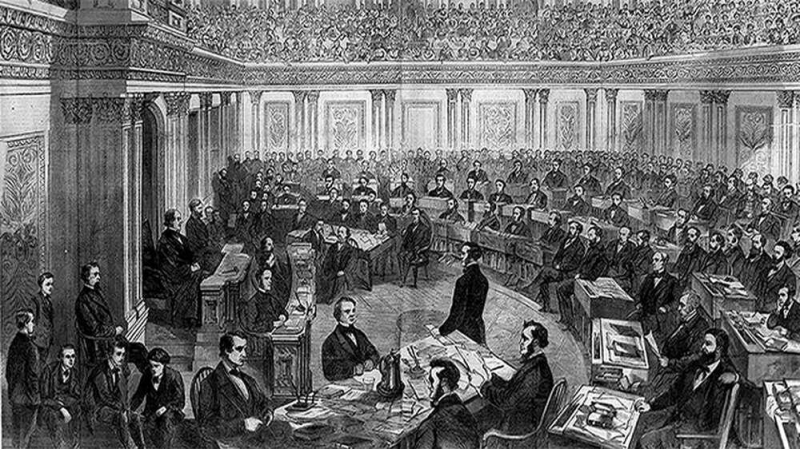
Photo: pbs.org








